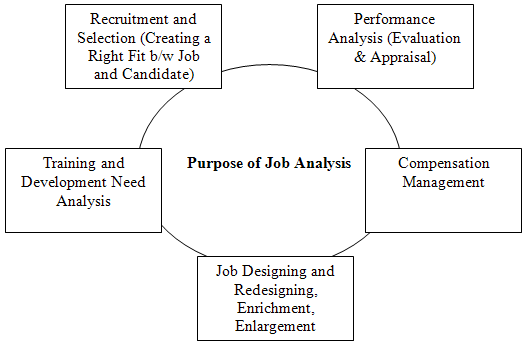Advantages and Disadvantages of Job Analysis
April 3, 2025
 Advantages and Disadvantages of Job Analysis
Advantages and Disadvantages of Job Analysis
Though job analysis plays a vital role in all other human related activities but every process that has human interventions also suffers from some limitations. The process of job analysis also has its own constraints. So, let us discuss the advantages and disadvantages of job analysis process at length. Advantages of Job Analysis Provides First…
 Approaches to Job Design
Approaches to Job Design
Job design is the next step after job analysis that aims at outlining, and organizing tasks and responsibilities associated with a certain job. It integrates job responsibilities and qualifications or skills that are required to perform the same. There are various methods or approaches to do this. The important ones are discussed below Human Approach…
 Benefits of Job Rotation
Benefits of Job Rotation
Job rotation is considered as an effective tool for successful implementation of HR strategy. It is about settling employees at the right place where they can deliver the maximum results. In today’s highly competitive world, this can be proved as the best strategy to find the immediate replacement of a high-worth employee from within the…
As discussed already, job analysis involves collecting and recording job-related data such as knowledge and skills required to perform a job, duties and responsibilities involved, education qualifications and experience required and physical and emotional characteristics required to perform a job in a desired manner.
The main purposes of conducting a job analysis process is to use this particular information to create a right fit between job and employee, to assess the performance of an employee, to determine the worth of a particular task and to analyze training and development needs of an employee delivering that specific job.
Let’s understand the concept with the help of an example.
If the job of an executive sales manager is to be analyzed, the first and foremost thing would be to determine the worth of this job.
The next step is to analyze whether the person is able to deliver what is expected of him. It also helps in knowing if he or she is perfect for this job. The process doesn’t finish here.
It also involves collection of other important facts and figures such as job location, department or division, compensation grade, job duties, routine tasks, computer, educational, communicational and physical skills, MIS activities, reporting structure, ability to adapt in a given environment, leadership skills, licenses and certifications, ability to grow and close sales, ability to handle clients, superiors and subordinates and of course, the presentation of an individual.
Job Analysis plays an important role in recruitment and selection, job evaluation, job designing, deciding compensation and benefits packages, performance appraisal, analyzing training and development needs, assessing the worth of a job and increasing personnel as well as organizational productivity.

Therefore, job analysis is one of the most important functions of an HR manager or department. This helps in fitting the right kind of talent at the right place and at the right time.
Your email address will not be published. Required fields are marked *